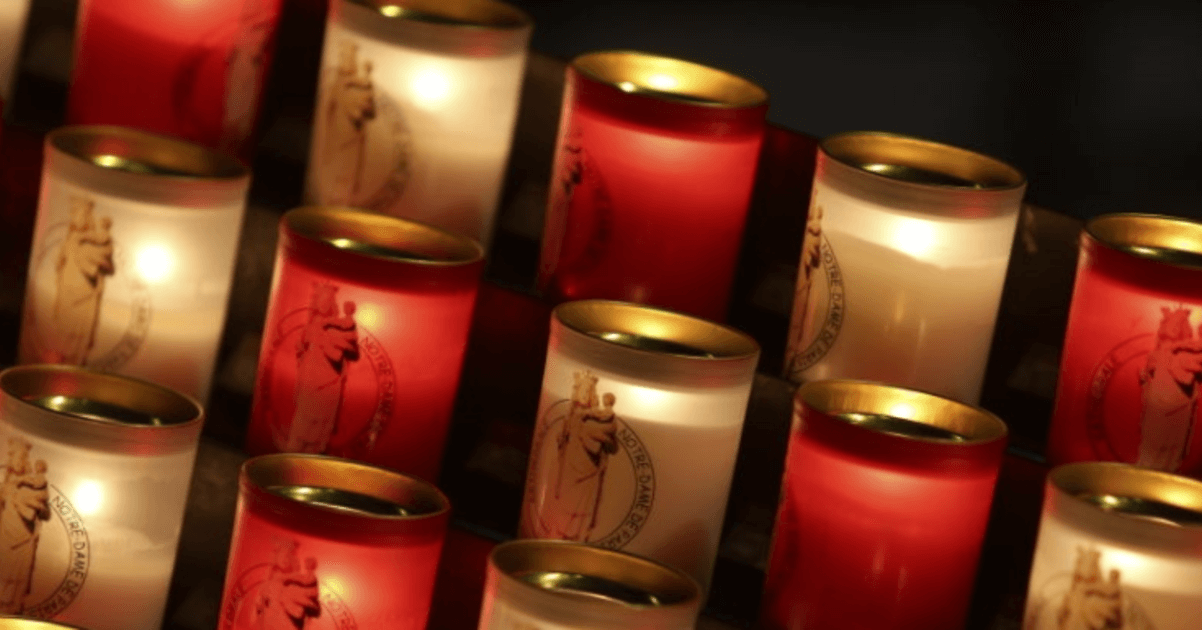Candles across the world burned brightly on Tuesday to commemorate Algeria’s 11th National Day for LGBTQ Rights. Started in 2007 by the advocacy organization Abu Nawas, participants light a flame to honor the country’s queer and population, which continues to survive in the face of immense struggle.
The candle “represents a kind of hope,” says Aissa Amazigh, the founder of Algeria’s Collective Mahabba, an LGBTQ group calling for diversity and coexistence.
“This is one of the few occasions that LGBTQ people can all connect together,” Amazigh tells INTO in an interview. “You can see that there’s someone in the same city facing the same things and facing the same oppressions.”
The day coincides with the birthdate of Selim I, who reigned as sultan of the Ottoman Empire from 1512 to 1520. Known conversely as “Selim the Grim” or “Selim the Resolute,” the ruler is often thought to be gay. Selim wrote of his attraction to other men (“beardless youth with the eyes of a doe”) in ornate poetry.
The sexual freedom expressed in his verse is a stark contrast to the Algeria of today.
“Algerian society is a very conservative society,” Amazigh explains over Skype. “The weight of religion and the weight of laws is a heavy burden on us.”
The Muslim country is one of more than 70 countries where homosexuality remains illegal. If found guilty of committing “an act against nature with an individual of the same sex,” LGBTQ people face up to two years in prison under Article 338 of the Algerian Penal Code. The nation’s laws, as outlined by Article 222 of the Family Code of 1984, are derived from Sharia law, under which same-sex relations are commonly punishable by death.
A 2016 survey from the International Lesbian Gay Association (ILGA) found that Algerians were split down the middle on the issue: 43 percent felt homosexuality should be a crime, while 35 percent argued same-sex activity should be legal.
Although Algeria’s Constitution promises “equality for all citizens,” those rights are rarely used to protect queer and trans people from discrimination and violence. Ramzi Isalam, a gay asylum seeker, wrote in a harrowing 2005 account that police harass, target, and brutalize LGBTQ people. Isalam reports that a gay party was raided by authorities in February 2002 and several attendees were sexually assaulted in custody.
“I witnessed the stoning of two young men suspected of being gay,” he writes. “A neighbor started to beat them, and other neighbours joined in, pelting them with stones. One of the men was bleeding very badly.”
“I was very disturbed by this incident,” Isalam continues, “as I knew it could easily have been me.”
But Amazigh says that the level of persecution an LGBTQ individual experiences depends on the person’s environment. Some queer and trans people are lucky to have supportive friends and family members. Others are forced into “rainbow marriages,” a term for gay men and lesbians who wed in order to avoid persecution and suspicion.
Groups to help LGBTQ people look for marriages of convenience have proliferated on Facebook in recent years.
Amazigh claims, though, that social media has been a boon to those who cannot come out of the shadows, in fear of being ousted from their jobs and communities. Access to the internet has allowed people to spread information and provide support to each other, although Amazigh laments that a lot of this space is devoted to “hooking up.”
“Facebook does help us to connect to each other and learn about our community,” he says. “Some people still think [homosexuality is] a disease or maybe it’s just a phase.”
What began as a small gathering in digital space has grown tremendously in recent years, as local LGBTQ groups like Alouen, TransHomoDz, and Collective Mahabba came on board to help organize the National Day for LGBTQ Rights. The 2007 event counted just six people. This year’s edition was an international day of solidarity, with allies joining in from around the world.
“It feels like we are supported and we are valued,” Amazigh says. “We exist and our pain is recognized.”
Note: Those who wish to participate in the National Day for LGBTQ Rights can join in by posting a photo of a lit candle to Twitter or Facebook under the hashtags #TenTen2017 and #TenTenAlgérie. Employees of Grindr and INTO proudly lent their support to the event.
Don't forget to share:
Help make sure LGBTQ+ stories are being told...
We can't rely on mainstream media to tell our stories. That's why we don't lock our articles behind a paywall. Will you support our mission with a contribution today?
Cancel anytime · Proudly LGBTQ+ owned and operated
Read More in Impact
The Latest on INTO
Subscribe to get a twice-weekly dose of queer news, updates, and insights from the INTO team.
in Your Inbox













